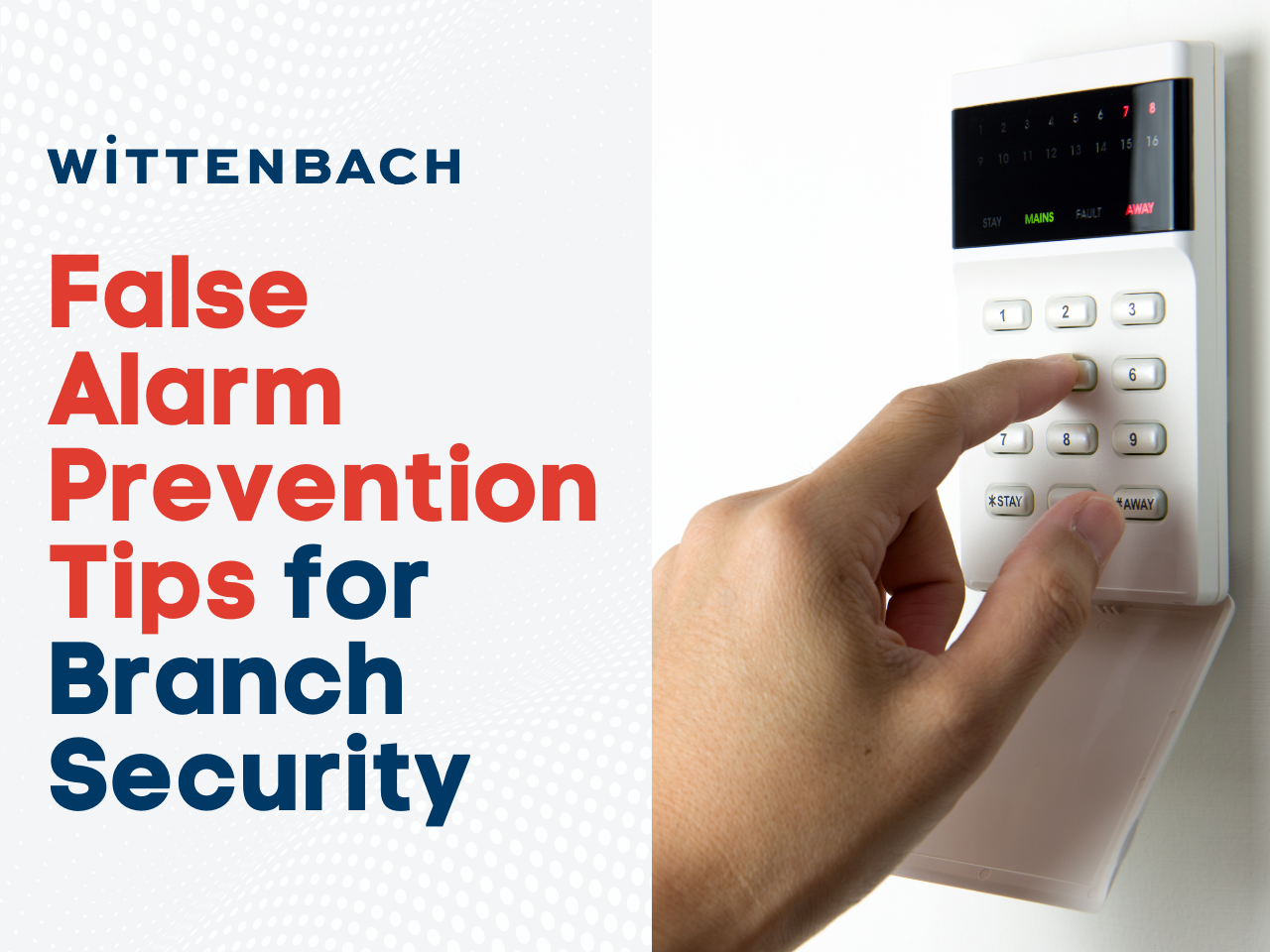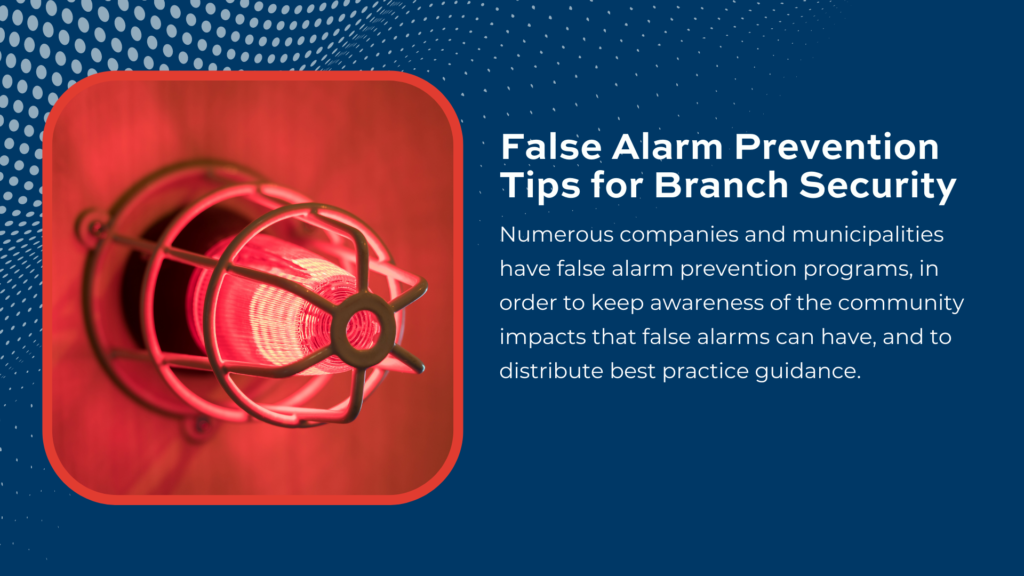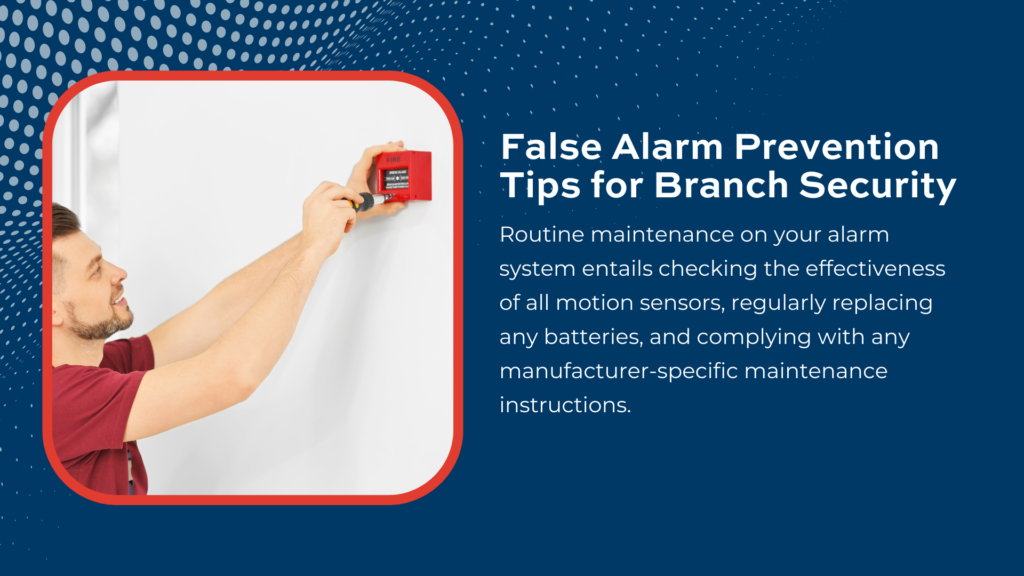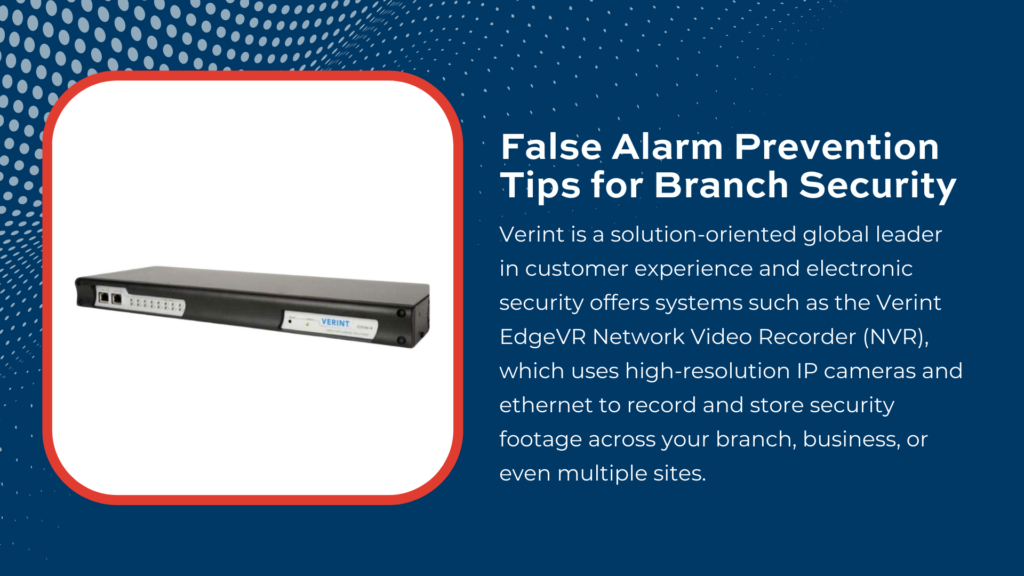Security systems for your bank or credit card are paramount in providing branch protection from criminals, extreme weather conditions, fire, and other possible threats. This means that ongoing system training and maintenance, both of software and hardware, is just as important as the branch security solution you choose.
When your employees have a confident understanding in how your financial institution’s security system works, not only do they bolster their own protection and awareness, but they can prevent false alarms. Not only do false alarms place unnecessary strain on local first responders, they waste tax dollars, and can often be prevented. Security Magazine quantifies this, saying, “It is estimated that over 90 percent of notifications are false alarms. This enormous rate of alarm activity can be caused by a variety of sources including policy updates, new system configurations, product changes, employee turnover, sensor functioning and even external influences like weather.” False alarm prevention also ensures that your branch stays up and running, and that everyone within it feels secure.
At Wittenbach, we have a team of experts who are laser-focused on physical and electronic branch security systems. We partner with the professional visual monitoring company CHeKT, security and fraud prevention titans Verint, and commercial security provider DMP. This collective experience means that both we and our clients have seen it all! Below, we will discuss what a false alarm truly is, and have gathered prevention tips for your branch to bear in mind.
What is a false alarm?
Numerous companies and municipalities have false alarm prevention programs, in order to keep awareness of the community impacts that false alarms can have, and to distribute best practice guidance. The City of Little Rock, Arkansas, concisely defines what constitutes a false alarm:
“An alarm call is considered to be false if a request for immediate assistance of emergency personnel is made and:
- An actual emergency situation or threatened criminal activity does not or did not exist.
- Is a result of accidentally or negligently activated signals, as well as any signal that is the result of faulty, malfunctioning, or improperly installed or maintained equipment.
- Is a result of an act of God (e.g. weather conditions).
- Emergency personnel are dispatched and the call is canceled while the responding personnel are en route.
- The responding emergency personnel determines that the request was otherwise unwarranted.”
Ways to prevent false alarms
- FARA, or the False Alarm Reduction Association, reiterates the need for consistent employee training on all security systems. “Hold monthly training classes to ensure existing users are aware of any changes to the system, designated entry/exit doors, proper opening/closing procedures, correct pass codes and arming codes, and rehearse how to cancel accidental activations.
Knowing what to do in the event of an accidental activation is critical. If you have confirmed for certain that the activation is a false alarm, the Montgomery, MD Department of Police says, “First: don’t panic! Carefully enter your disarm code to reset your system. Second: Wait for your alarm company or monitoring center to call and give them the proper password or passcode. Some alarm companies instruct their customers to contact them if they accidentally activate their alarm. […] Third: DO NOT leave your home or business until you have talked with your alarm monitoring company. Do not call 911 to cancel an alarm activation. You must call your monitoring center.”
- GuardTronic adds, “Consider your alarm’s sensitivity setting for vibration, door contacts and motion detectors. Simple construction, street vibrations and strong winds may rattle structures and cause alarms.” Understanding this sensitivity threshold will help you to anticipate an externally-induced false alarm at your branch, whether from heavy street traffic or extreme weather conditions. This also means placing your system in a “test” mode during construction, as tools and vehicles have high potential to trigger an alarm.
- Routine maintenance on your alarm system entails checking the effectiveness of all motion sensors, regularly replacing any batteries, and complying with any manufacturer-specific maintenance instructions. This also means keeping windows and door frames in proper working order, preventing drafts and other unnecessary motion that might signal a false alarm.
- Testing all components of your alarm system on a regular basis ensures that it triggers when it should, and does not signal an emergency when it shouldn’t. The City of Little Rock again prompts, “If you recently had a false alarm, find out which zone or sensor was activated, and try to figure out why the alarm system was activated. If the same zone or sensor is triggering the system multiple times, then you may have a defective sensor.”
Alarm systems and services Wittenbach recommends
- Alarm monitoring with Security Central: Per the Wittenbach website, “We partner with Security Central and our monitoring operators take great pride in paying as much attention to security as you demand. Our operators undergo extensive training, must pass a full battery of tests and trials and are carefully screened and subjected to background checks. Our people go the extra mile to assure maximum protection and response for our customers.”
- Control panels and keypads with DMP: “DMP is a family-owned independent manufacturer of intrusion, […] access control and cellular alarm solutions. All DMP products are designed, engineered and manufactured in America with U.S. and global components.” In a prior blog post, Wittenbach featured the DMP Virtual Keypad, which controls building entry with intuitive user management tools.
- Premium electronic security with Verint: This solution-oriented global leader in customer experience and electronic security offers systems such as the Verint EdgeVR Network Video Recorder (NVR), which uses high-resolution IP cameras and ethernet to record and store security footage across your branch, business, or even multiple sites.
- Visual alarm monitoring with CHeKT: Provider CheKT offers a four-zone and 12-zone video monitoring service, helping to deter crime and keep your employees and assets safe.
Conclusion
Now that you have a thorough understanding of alarm systems and best practices, your branch is further equipped to be good community stewards by preventing false alarms. Reach out to Wittenbach today to discuss all the ways we can help you keep your employees and financial institution safe from intruders and environmental conditions.




